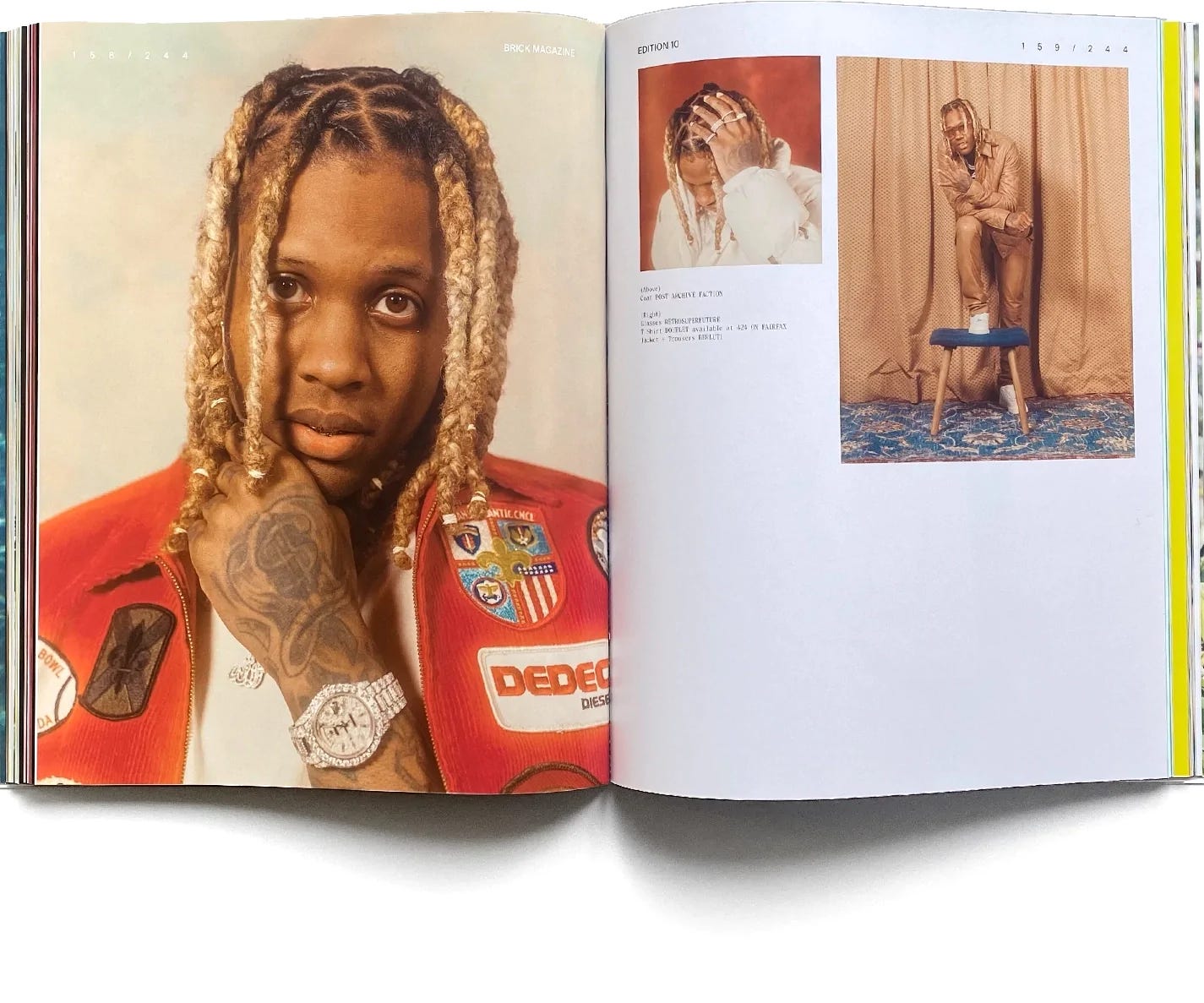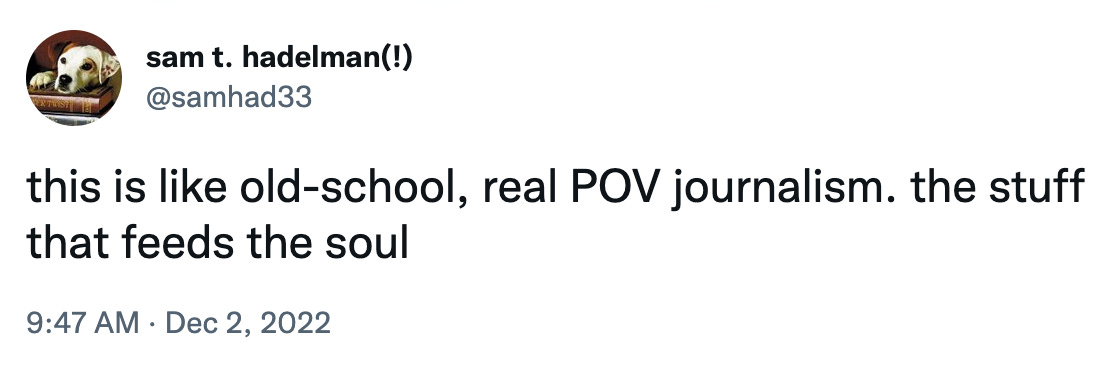001: The Lil Durk Cover Story
To kick off my once-in-a-blue-moon newsletter, we revisit my print profile on the Chicago legend for BRICK's 10th issue.
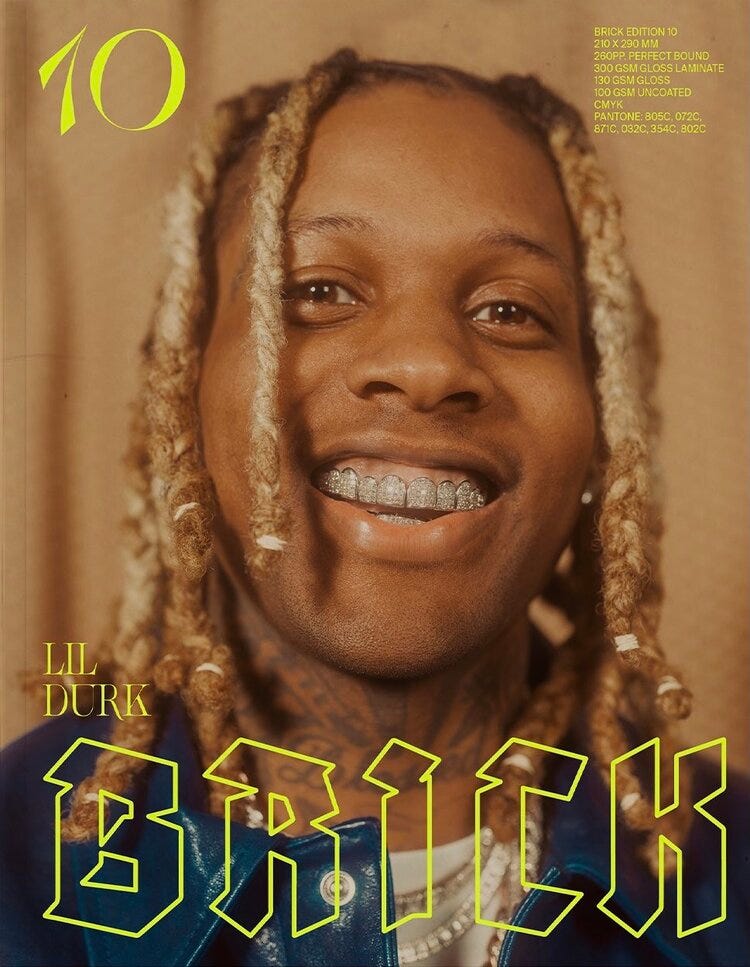
This morning, I received an exciting note from the mag’s editorial director, Sam Butler: the Lil Durk feature is now online, in full. With 2022 coming to an end, revisiting one of my old stories really helped me acknowledge how far I’ve come as a journalist.
This cover story was one of my most memorable journalistic opportunities. I got to travel to Atlanta in February 2021 (I actually got stuck there for two extra days due to a snow storm) to work with my good friend, photographer Braylen Dion. Sam and Hayley had bet on me, and I’m so glad I bit the bullet and took the risk: retracing Durk’s decade-long career was an honor, especially at such a pivotal time. It’s the story that welcomed me into the BRICK family as East Coast Editor, to which I am eternally grateful.
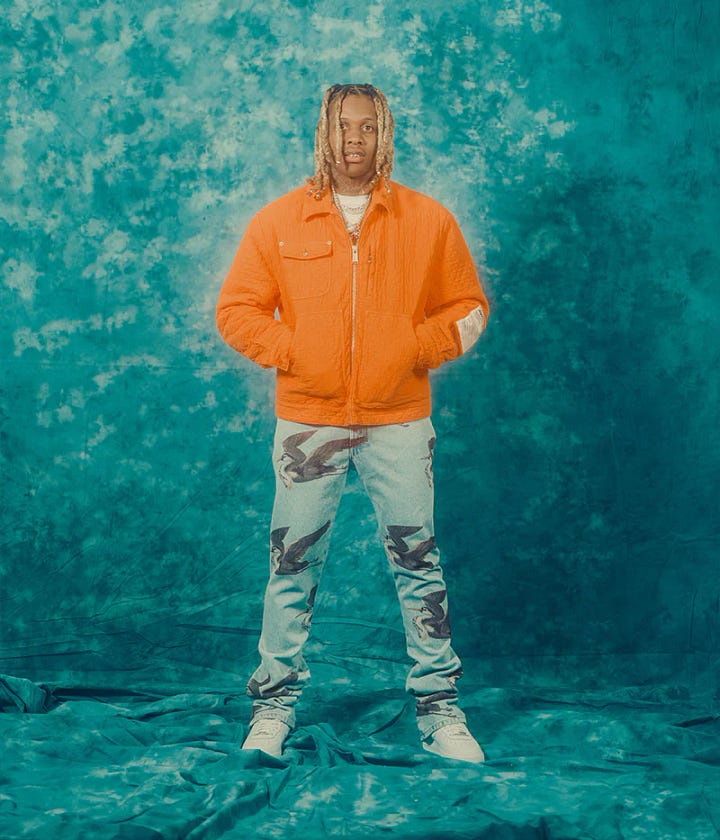
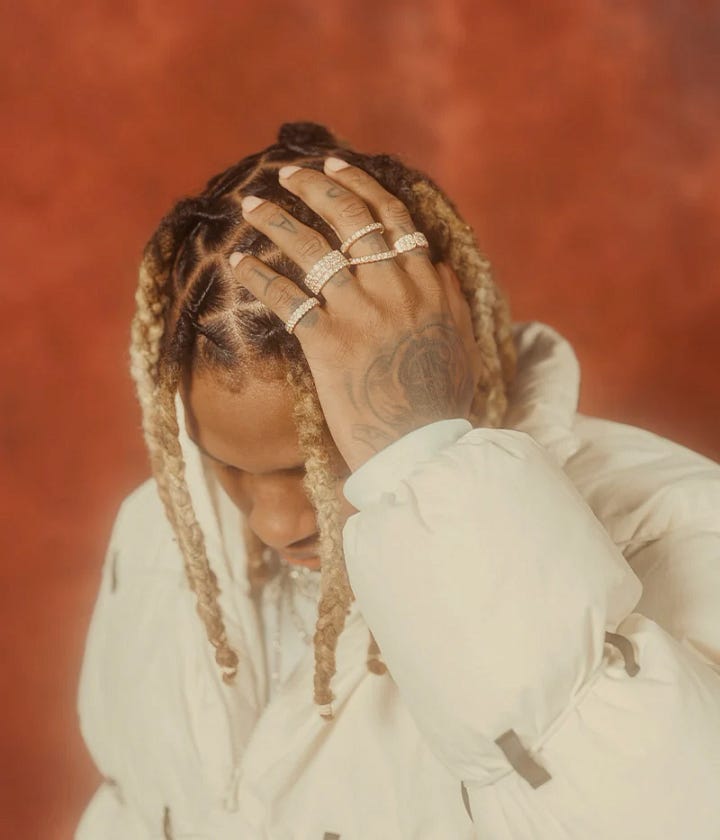
FakeShoreDrive's Andrew Barber on Durk’s beginnings as a Chicago drill pioneer:
The genre wasn’t even called drill yet, and [“I Get Paid”] really stood out to me. Durk had taken elements of other things that were popular at the time and ran with it, which made him different from guys like Chief Keef. That’s what the Midwest does well in general. It takes elements of different regions and makes it their own thing.
Durk on leaving Chicago for Atlanta post-Def Jam:
I had to get away from what was going on in Chicago … there’s the violence that's number one, and you can't do shows in the city. There’s always BS going on. You’re like a crab in a bucket. They don't want to see you win. The artists weren't really working with each other. So I said to myself, I'm going to Atlanta, just leaving everything behind, with nothing. This is the number one music city. You have rappers, producers, singers, songwriters, politics. What else? It's just, everything is here. And people from Atlanta work with each other. They help each other. You don’t have that in Chicago.
Durk on losing Von, and how it impacted his music:
I knew I needed to talk about this on the mic and see how the fans react to it, see how the streets react to it. And I recorded a lot of songs that I'll never put out. They were just for me to get me out my feelings.
Durk on the future of drill:
Drill’s becoming fun again. And it ain't the end. You can keep going and make a whole ‘nother genre or a whole ‘nother power move. It’s about how the world continues to do it.
Durk on what motivates him:
It's a little different for me because I get motivated off of doubt. Hate. I get motivated off negativity from close people who supposedly want you to win. They just be behind your back talking, Oh he ain't never finna… I had a friend before tell me, You not gonna start rapping. You should start signing artists. I had somebody tell me, You should just make a straight R&B album. I went through all the type of phases where it was like, I'm finna prove them wrong. I'm finna prove them wrong.
Some support from Sam Hadelman, friend of the newsletter:
I’ll leave it there, and let you decide for yourselves. Read the cover story, one of ten for the BRICK’s tenth issue, here.

